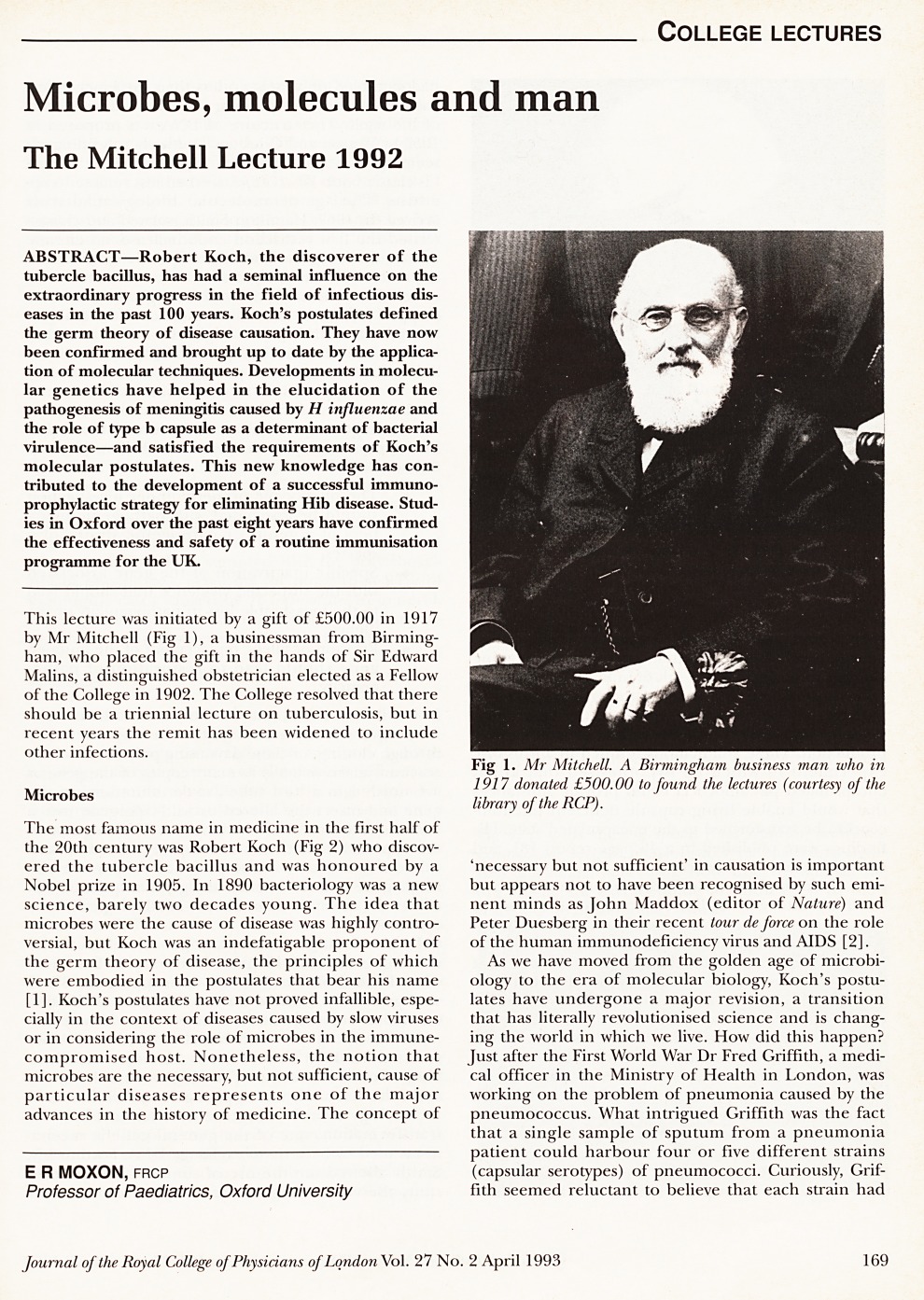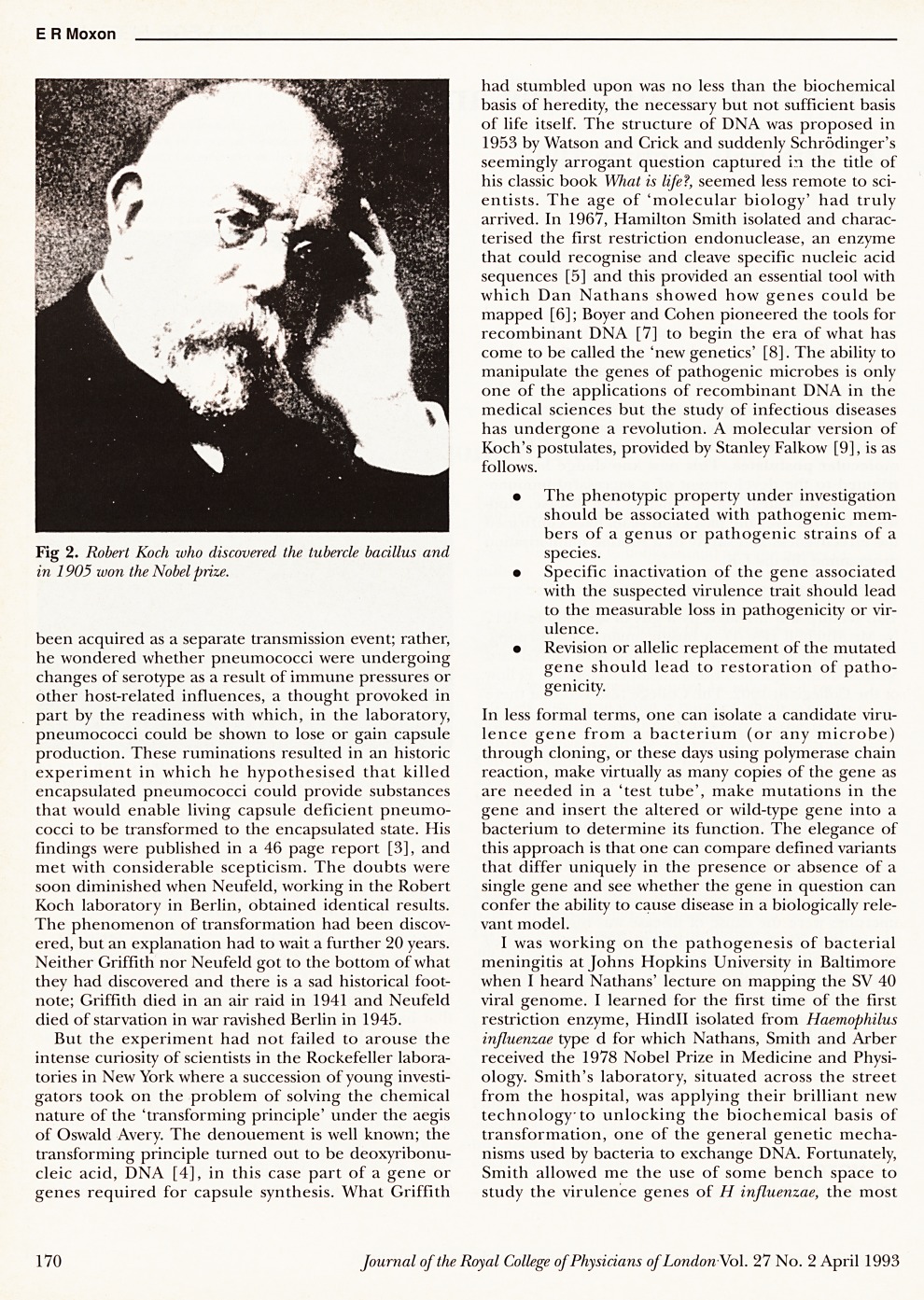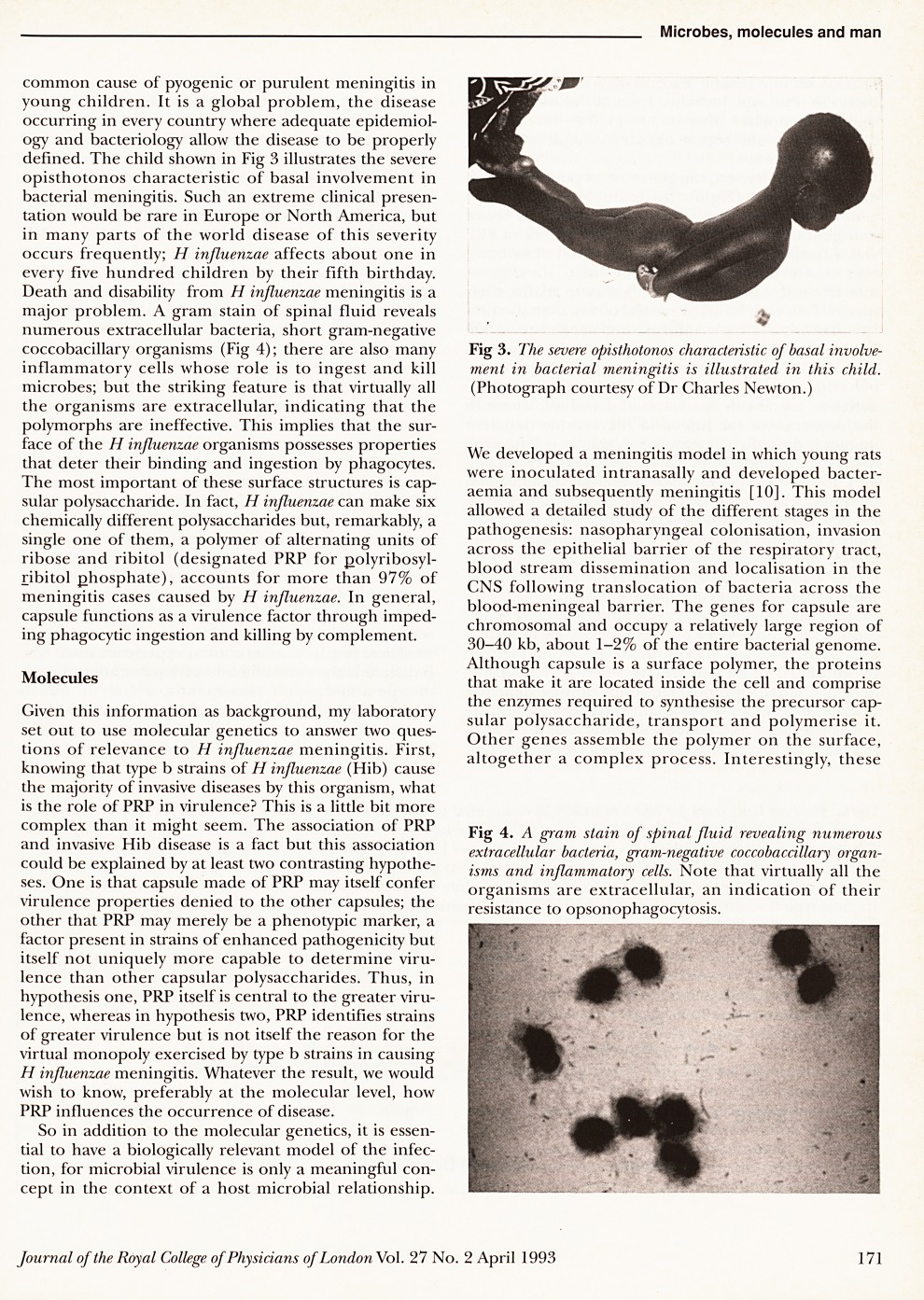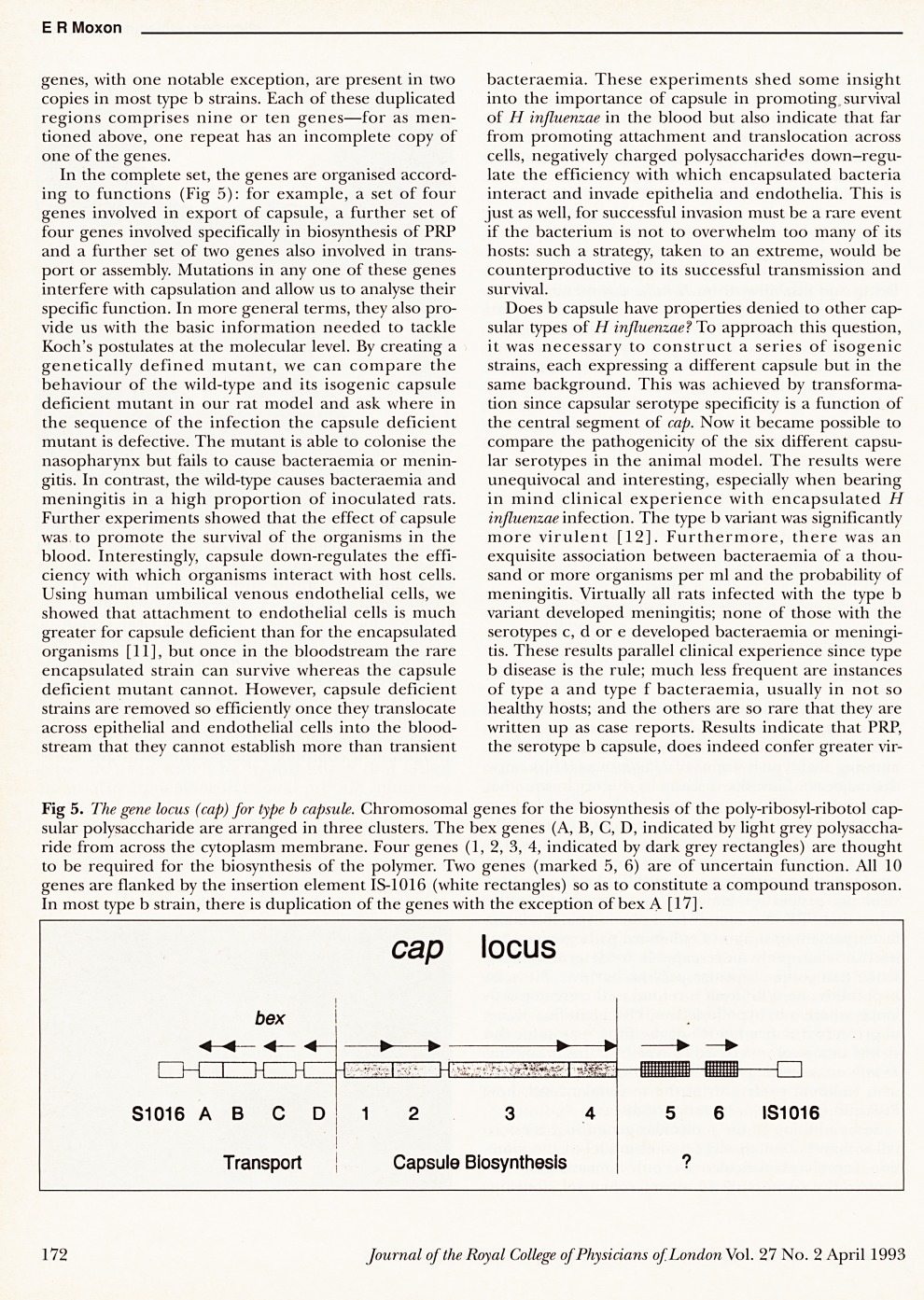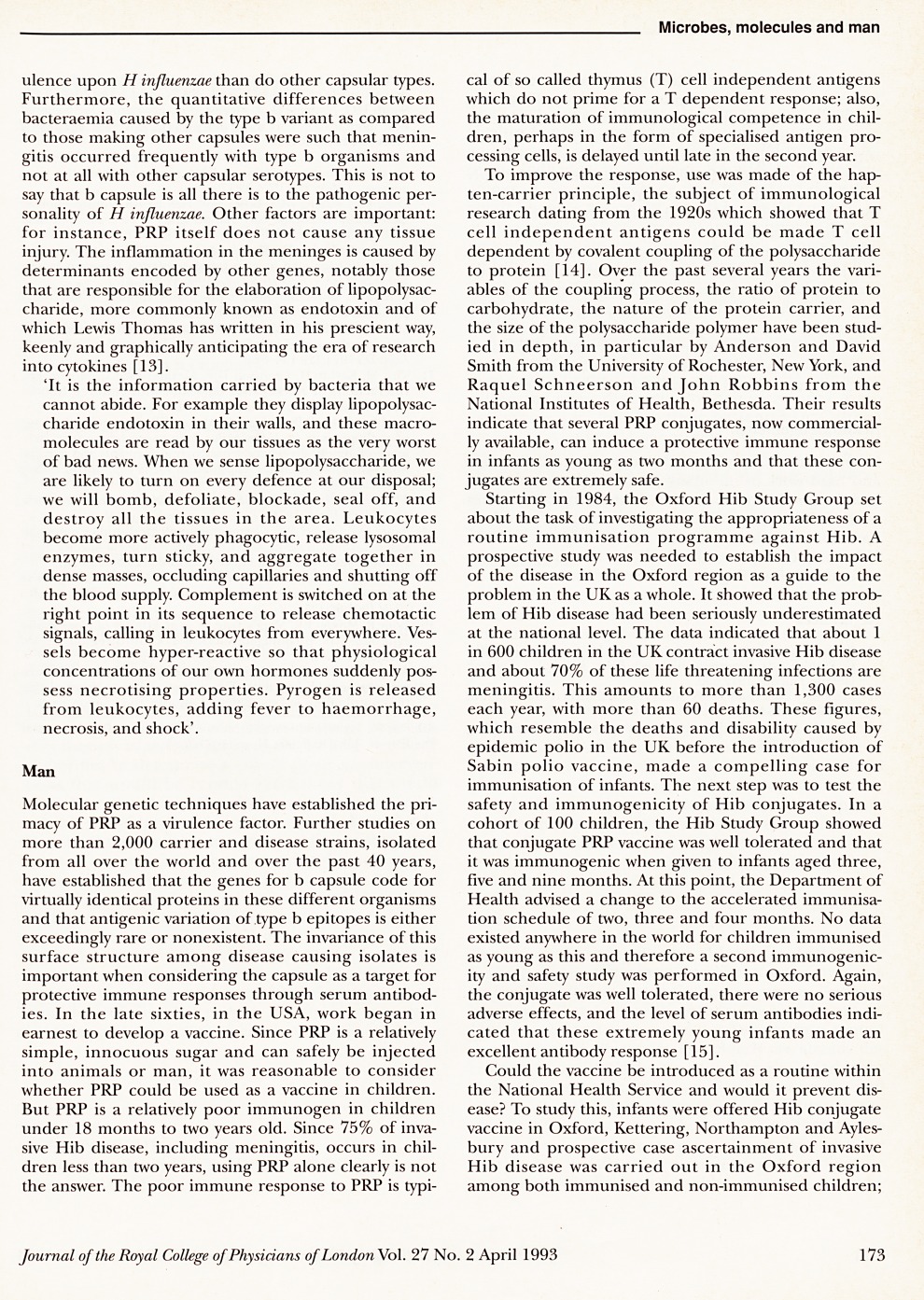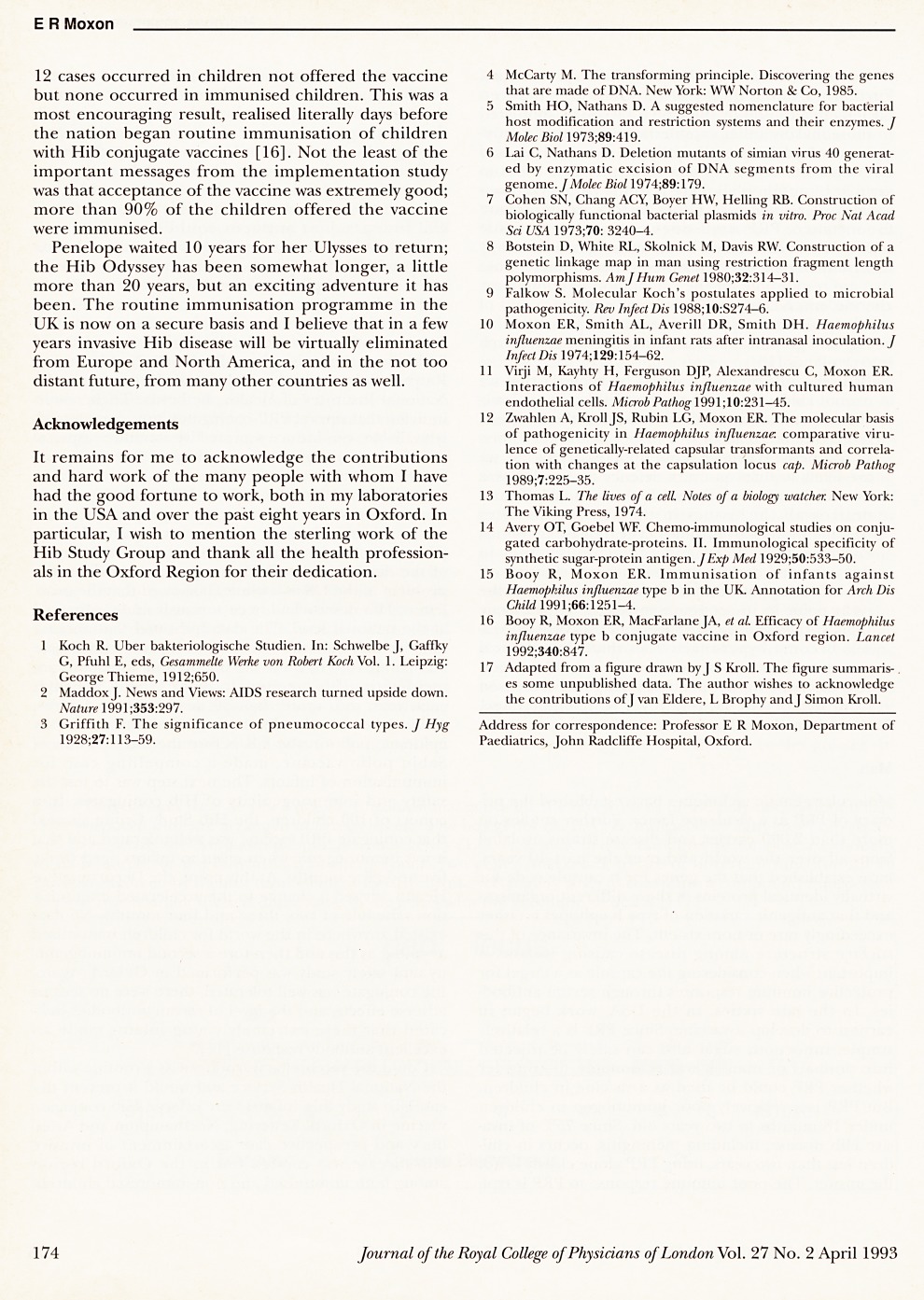Abstract
Robert Koch, the discoverer of the tubercle bacillus, has had a seminal influence on the extraordinary progress in the field of infectious diseases in the past 100 years. Koch's postulates defined the germ theory of disease causation. They have now been confirmed and brought up to date by the application of molecular techniques. Developments in molecular genetics have helped in the elucidation of the pathogenesis of meningitis caused by H influenzae and the role of type b capsule as a determinant of bacterial virulence—and satisfied the requirements of Koch's molecular postulates. This new knowledge has contributed to the development of a successful immunoprophylactic strategy for eliminating Hib disease. Studies in Oxford over the past eight years have confirmed the effectiveness and safety of a routine immunisation programme for the UK.
Full text
PDF